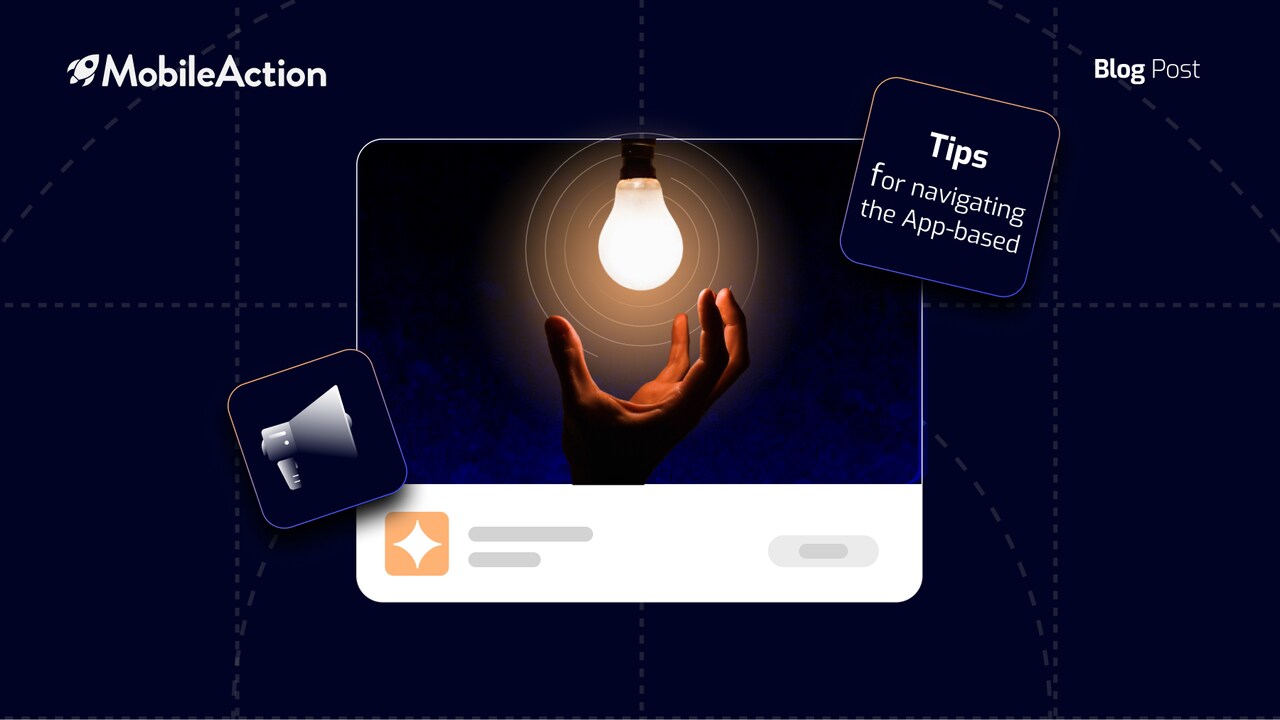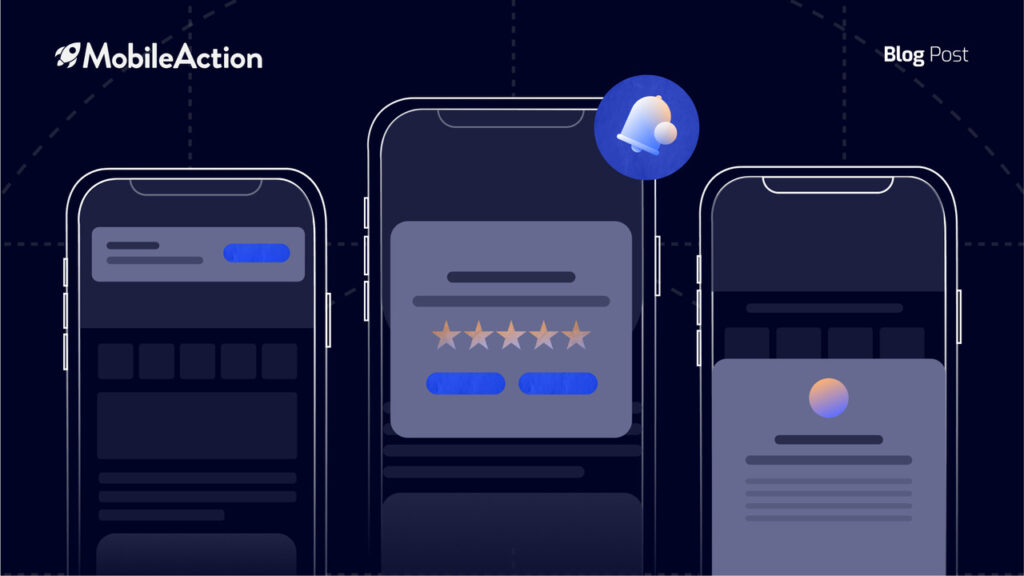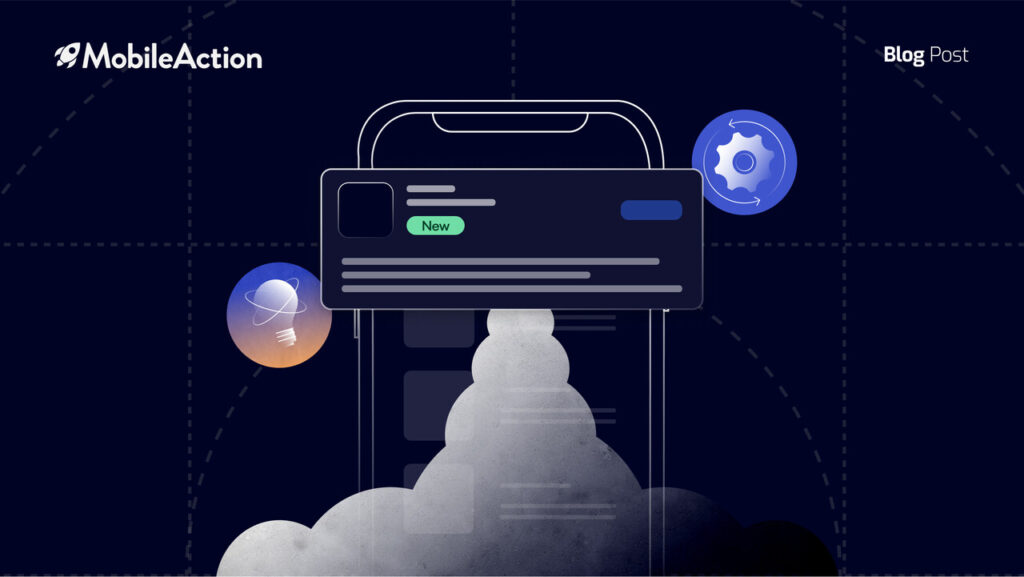Taking a step forward in mobile app marketing is like digging a well with a needle because it is easy to get lost among millions of apps.
However, it is possible to stand out in this sea without drowning with the audacity of a brave entrepreneur.
At this point, an effective app-based marketing strategy comes into play, and this strategy will make your app shine like a diamond in the gnarled digital world.
In today’s article, we will first explain app-based marketing and then show you how to maximize it!
Understanding App-based marketing
App-based marketing is a comprehensive strategy that primarily promotes mobile apps on various platforms to increase their visibility, downloads, and user engagement.
App-based marketing is unique because, unlike general digital marketing, it is a genuinely tailored approach to mobile users’ behavior and device interactions.
In the competitive world of mobile apps, app-based marketing has emerged mainly as a way to connect with the intended audience.
Unlike general mobile marketing, app-based marketing uses data insights to understand mobile users’ unique needs and behaviors.
An effective app-based marketing effort is characterized by tracking the user journey, collecting feedback, and striving for better in-app experiences.
By implementing these practices, app marketers can achieve higher retention rates, increased user satisfaction, and a better reputation for the app.
It’s also essential to integrate metrics such as click-through rate, cost per install, and other metrics directly related to apps to analyze an app’s marketing performance for competitive advantage.
Want to learn more about how optimize your app? Schedule a demo today and let our experts guide you through!
Differences between app marketing and mobile marketing
While app and mobile marketing are often used interchangeably, there are some critical differences between them.
Mobile marketing targets mobile users through advertising, email, and SMS campaigns and seeks to engage them even when they are not using a given app.
It involves connecting with users across different platforms, including social media and mobile-friendly websites.
At the same time, app-based marketing is more focused, narrowing the engagement to within the app ecosystem.
Being specific also helps app marketers develop a hyper-focused campaign that fits the intended demographic.
For example, while mobile marketing can rely on generalized email campaigns combined with ads on mobile websites, app-based marketing can leverage in-app messaging, personalized notifications, and custom in-app events to generate ongoing interactions within the app itself.
To learn more about mobile marketing you can check out our blog titled Create a winning mobile application marketing plan for 2025!
Importance of a structured marketing plan
A properly structured app marketing plan offers a unique path to success. It ensures optimal every step of the app lifecycle, including launch, user acquisition, and retention.
A structured plan outlines the timeline, channels, and tactics needed for a successful app promotion.
This plan keeps the marketing team on track by avoiding obstacles in advance and minimizing resource wastage.
Plus, structured plans allow app marketers to monitor the effectiveness of each stage of the campaign and make adjustments based on user feedback, app analytics, and trend dynamics.
With a solid marketing framework, you can instantly convert users into loyal advocates!
-
Goal Setting for App Launches
It is vital to set clear and measurable objectives right from the start.
These objectives allow us to test our progress and ensure we use our resources efficiently.
For example, you should reach 1.000 installs in the first week or retain 40% of users after a month.
-
Sustaining User Engagement
Getting users to download your app is the first step in effective app marketing.
The real work begins when you have to keep them engaged and happy!
A successful app engages users with valuable content, interactive features, and timely updates.
This keeps them returning for more, reinforcing their brand loyalty and increasing the chances that they will recommend your app to others.
Stages of an app-based marketing strategy
Achieving a successful app marketing strategy to gain and retain users involves understanding and utilizing multiple stages: Awareness, Acquisition, Engagement, and Retention.
1. Awareness
Awareness is about getting users to know about your app for the first time. There are so many ways to create awareness!
You can partner with influencers, advertise, or run PR campaigns. This stage lets people know about your app and why they should value it.
Through pre-launch activities such as teaser videos, blog posts, and reaching out to influencers, you can build awareness long before your app launches.
You can also run targeted ads on Instagram and Facebook and create a landing page to capture email newsletters. These will help generate interest!
2. Acquisition
The main goal of this stage is to drive interested users to download the app.
Marketers can create demo videos, start influencer collaborations, and pay for search ads to attract users who will install and retain the app.
It’s a great way to get people excited about your app.
You could also try A/B testing (blog link) some of the elements on the App Store to see what works best for your target audience.
This could be anything from the app icon, screenshots, or promo video to make it fit in with your audience’s look.
Other ways to help convert users into customers include running limited-time offers for early adopters or providing content exclusive to early adopters within the app.
3. Engagement
When users download an app, it’s time to focus on keeping them engaged!
You can use push notifications, in-app messages, and regular updates to inform users about new features or ways to make your app more straightforward.
Gamification and personalization are great ways to make users feel more attached to your app.
Engagement strategies focus on maintaining user interest through gamification, loyalty rewards, and social sharing capabilities.
In other words, interactive features like daily challenges or leaderboards help build a sense of community in your app, which keeps users coming back for more.
4. Retention
Retention is about holding onto your users for extended periods. Some tactics for retention include rewards programs, personalized recommendations, and seasonal content.
It means making the app an essential part of the user’s routine so they’ll want to return repeatedly.
While it can be tricky to achieve retention, it’s vital to an app’s success.
Re-engagement emails, push notifications, and SMS marketing are tools for re-engaging users who have lapsed into your app.
You can also reward your long-term users with special features or early access to new updates to show your appreciation and encourage their loyalty.
Essential Techniques in App-Based Marketing
The app marketplace is super competitive, but a good strategy can make all the difference!
The following are some of the most critical techniques in app-based marketing that will make all the difference in your app’s success.
1. App Store Optimization (ASO)
ASO is indispensable to improving an app’s visibility in the App Store and Google Play.
Keyword optimization, persuasive descriptions, and creative app icon designs contribute to higher store rankings and increased downloads.
Plus, it’s always a good idea to regularly update your screenshots, icons, and keywords according to constantly changing search trends to keep your app competitive in store listings.
Monitoring competitor strategies and obtaining user feedback may provide valuable insight for effective ASO updates.
2. Location-Based Marketing
Location-based marketing is a great way to connect with your target audience based on their location.
You can personalize the experience based on where your users happen to be.
Apps can provide localized offers through GPS, beacon, and geofencing technologies.
A great example of this in action is a retail app that sends notifications to users when they’re near a store, and there’s a discount.
3. Personalized Communication
Personalization can make our lives easier and more enjoyable, and it’s no different when it comes to apps!
Personalized communication is a great way to encourage users to engage with your app, create a unique experience, and increase user engagement.
Sending customized push notifications, personalized discounts, or updates about user preferences can make a difference.
Personalization in the mobile world isn’t just about sending similar-looking push notifications; it’s about using data about your users to craft tailored experiences within the app.
For example, imagine a fitness app that sends personalized exercise tips or reminders after workouts based on user data. It’s a simple way to make a significant impact!
4. In-App Marketing Strategies
Have you ever wondered how apps can engage more users? The answer is in-app marketing!
It’s a great way to promote the app’s new special features or content and excite users.
This can be achieved by displaying new features based on banners, special offers for in-app purchases, or seasonal sales within the app.
In-app marketing involves promoting content or products directly inside an app and video ads for featured products that can generate extra revenue.
Tools and Resources for App Marketing
Using the correct tools for measuring and improving app marketing efforts is crucial to their optimization.
Here are some tools and resources to help you track, segment, and communicate with your users more effectively:
-
Performance Analytics Tools
Analytics tools such as Google Analytics, Firebase, and Mixpanel can help you understand your users better by providing insights into data such as user behavior, session duration, and conversion rates.
Such analyses can be used to optimize marketing campaigns and find out exactly where users drop off.
Performance analytics tools are also essential for monitoring KPIs such as user acquisition cost, promotion rate, and average revenue per user.
-
User Segmentation Tools
Segmentation tools allow marketers to categorize users into manageable groups based on age, location, or spending behavior and precisely target them for each group’s specific needs.
It also makes it easier to deliver personalized promotions.
-
Messaging Platforms for SMS Marketing
SMS messages are ideal for time-sensitive notifications such as in-app events or limited-time offers.
Such platforms’ automation and segmentation features help marketers send SMS updates at the perfect time for each user segment.
Conclusion
Optimizing an app for ideal store performance can be challenging and requires a broad approach involving various strategies and tools.
App-based marketing done well creates a tremendous difference in visibility, downloads, and user engagement.
Whether you’re a startup or an established enterprise, investing time and resources into understanding and implementing these strategies can transform your app from unnoticed to indispensable.




